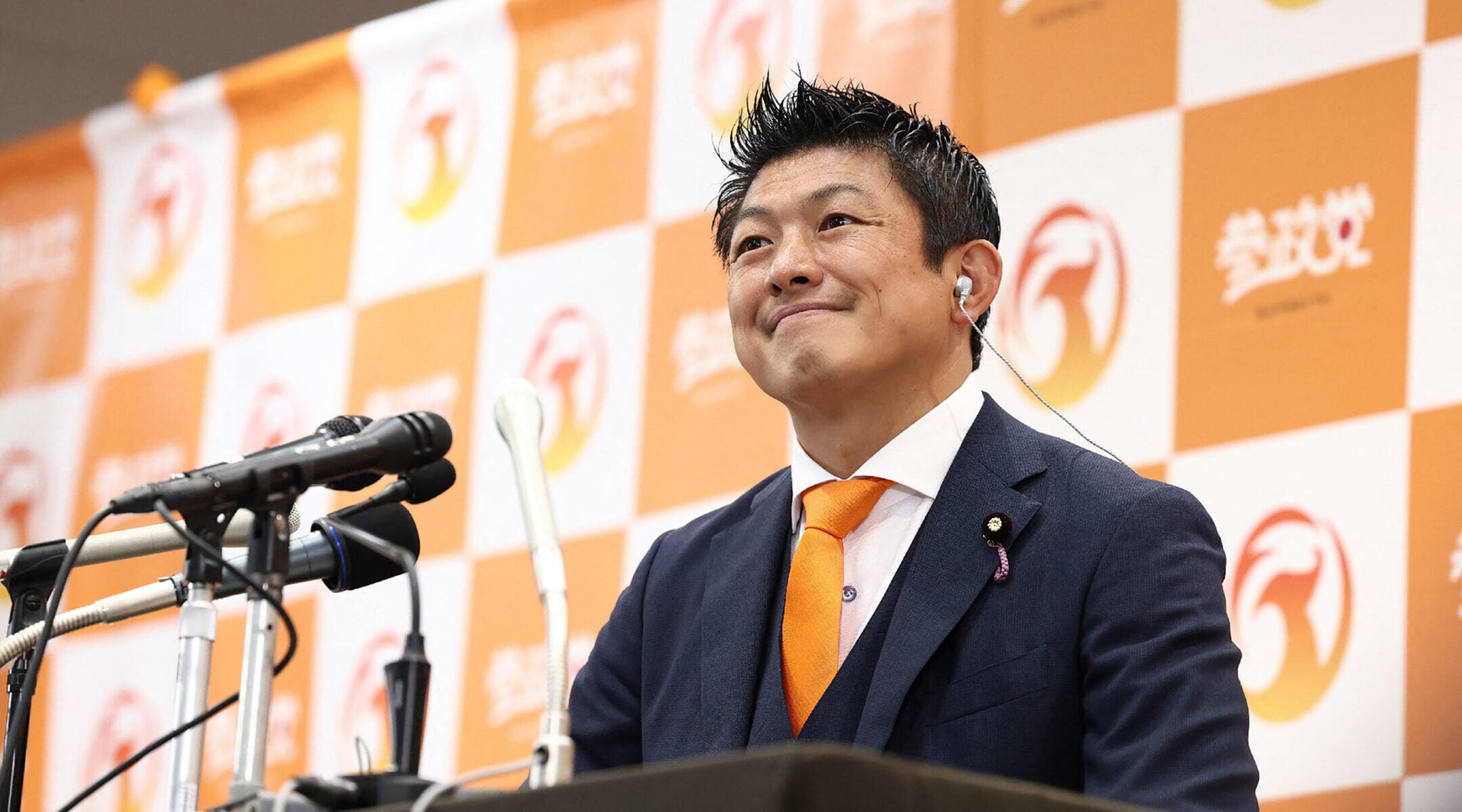Japan sees big wins for far-right, anti-immigration party that denounced ‘Jewish capital’
Sanseito’s leader, Sohei Kamiya, has denied being antisemitic

Japan’s opposition party Sanseito leader Sohei Kamiya smiles as he speaks to members of the media at the vote counting center in Tokyo on July 20, 2025. Photo by Jiji Press/AFP via Getty Images
(JTA) — Japan’s far-right Sanseito party emerged triumphant in the country’s latest parliamentary election this week, signaling the rise of a nationalist, anti-immigrant movement with a history of decrying “Jewish capital.”
Sanseito, which flies a “Japanese First” banner explicitly inspired by President Donald Trump, gained 14 seats in the country’s upper house elections on Sunday — a leap from only one seat, held by leader Sohei Kamiya.
The upper house is less powerful than Japan’s lower house, where Sanseito has three seats. But the party’s upper house victories stripped a majority from the center-right Liberal Democratic Party, which has governed almost continuously since its formation in 1955, triggering calls for Prime Minister Shigeru Ishiba to resign.
Sanseito was born only five years ago during the COVID pandemic, when Kamiya founded a YouTube channel and built a base of social media followers united by their disaffection with conventional political parties. The channel opposed public health measures such as mask mandates and vaccine requirements, and espoused conspiracy theories about global liberal elites who sought to weaken Japanese security and cultural purity.
Kamiya won Sanseito’s first upper house seat in 2022. During the campaign, he published a pamphlet that claimed Jewish financiers were profiting from inciting fears about COVID, saying that Sanseito would not “sell Japan out to Jewish capital.” About 1,000 Jews live in Japan, most of them immigrants and expatriates.
Kamyia has denied being antisemitic. According to Jewish journalist Jake Adelstein, he said at a press conference earlier this month, “I have Jewish friends and in fact, was a member of the Japan-Israel Friendship Society, which led online commentators to accuse me of being a puppet of the Jews.”
In this election, Sanseito campaigned on restricting immigration and foreign capital, bolstering defense and curbing gender equality and diversity policies. Kamiya has advocated for women to leave the workplace and focus on raising children.
Though Japan has a relatively low number of immigrants — only about 3% of the population — immigration has increased since the 1980s, when it opened up to migrant labor from across Asia and Latin America. More recently, the government has softened immigration laws to allow more workers into a country with an aging, shrinking population.
Nonetheless, local commentators say that Sanseito’s platform resonated with voters who are frustrated with Japan’s rising inflation and cost-of-living crisis. The party blamed immigrants for hoarding welfare benefits, depressing wages and worsening crime, claims boosted by a torrent of disinformation online.















